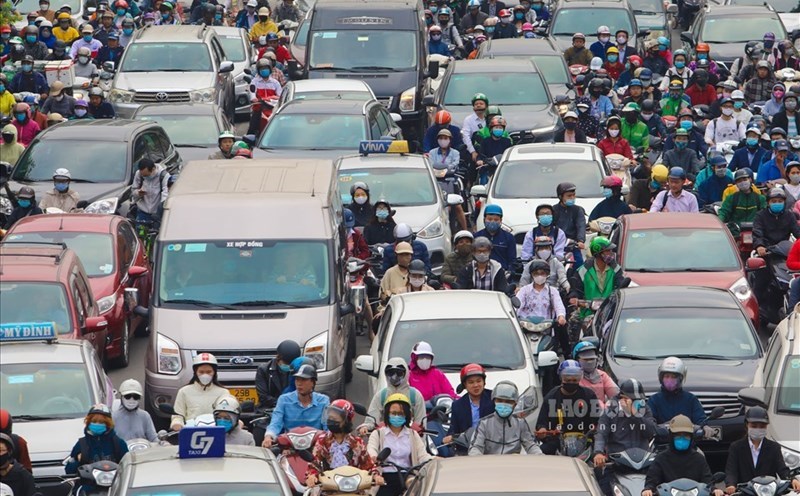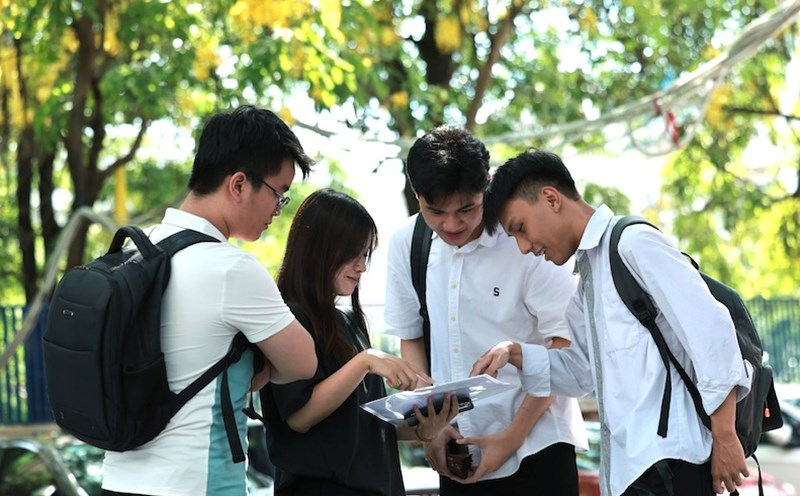On the afternoon of July 15, the Government Portal organized a seminar on "Determination to protect the environment and protect the health of the people of the capital".
Mr. Hoang Van Thuc - Director of the Department of Environment (Ministry of Agriculture and Environment) - said that Directive No. 20/CT-TTg of the Prime Minister assigns many tasks and solutions to all ministries, branches and localities nationwide, focusing on large cities, especially Hanoi City.
For the Ministry of Agriculture and Environment, assigned in this Directive, there are 5 major groups of tasks. The Department of Environment is advising the ministry's leaders to implement the construction next week.
In particular, the Prime Minister assigned the Ministry of Agriculture and Environment to coordinate with ministries, branches and localities to continue reviewing and perfecting policy mechanisms in the field of environmental protection.
Regarding the two-level government model, the Ministry of Agriculture and Environment has also advised the Government to amend a number of decentralization and delegation of authority to localities to implement these tasks.
According to Mr. Hoang Van Thuc, we must review the national environmental technical standards system.
He gave an example of the emission standards for cars in circulation that the ministry has issued, and the ministry will issue additional regulations on emissions for motorbikes and mopeds, including regulations on the roadmap for testing vehicles from motorbikes and mopeds.
For example, Hanoi will have to standardize motorbikes and mopeds from July 1, 2027. To achieve that roadmap, localities such as Hanoi City must increase investment in facilities: vehicle emission testing points or other policy mechanisms, and also advise the Ministry of Finance to attract investment resources.
"We must have a mechanism to support policies and budgets from the central to local levels for green transformation," said Mr. Hoang Van Thuc.
Or in controlling administrative sanctions, the Ministry is also amending Decree No. 45/2022/ND-CP of the Government regulating administrative sanctions in the field of environmental protection.
The next group of solutions is that the Prime Minister assigns ministries to continue to invest, coordinate with ministries, branches and localities to strengthen the monitoring network so that we have dense data, ensuring information to serve State management agencies at the central and local levels.
In particular, this is information about observation data, especially information about air quality that must be shared so that people can have daily grasp.
Currently, the Ministry is developing a forecast, warning that there will be a similar bulletin to the daily weather forecast, providing indicators for each region, especially pollution parameters
In addition, the Ministry also performs the tasks assigned by the Prime Minister, completing the final stage to submit to the Prime Minister the National Action Plan on overcoming pollution and managing air quality for the period 2025-2030, including proposals for targets. For example, setting a target for Hanoi capital to reduce fine dust by 20% by 2030 compared to 2024.
According to the average annual assessment of fine dust in Hanoi of 47 μg/m3, in the next 5 years, it must decrease by 20%. To reduce fine dust, it requires great determination from all levels and sectors, from the central to local levels, especially the business community, to join hands with a series of solutions.











